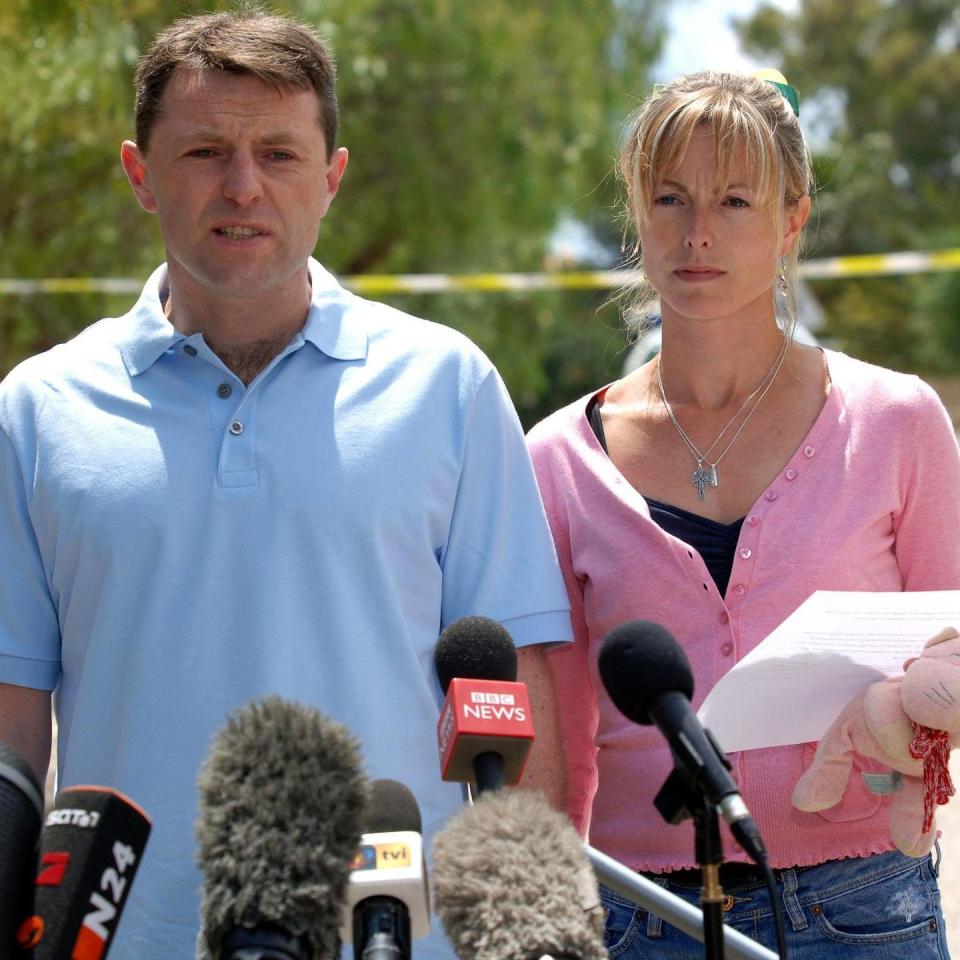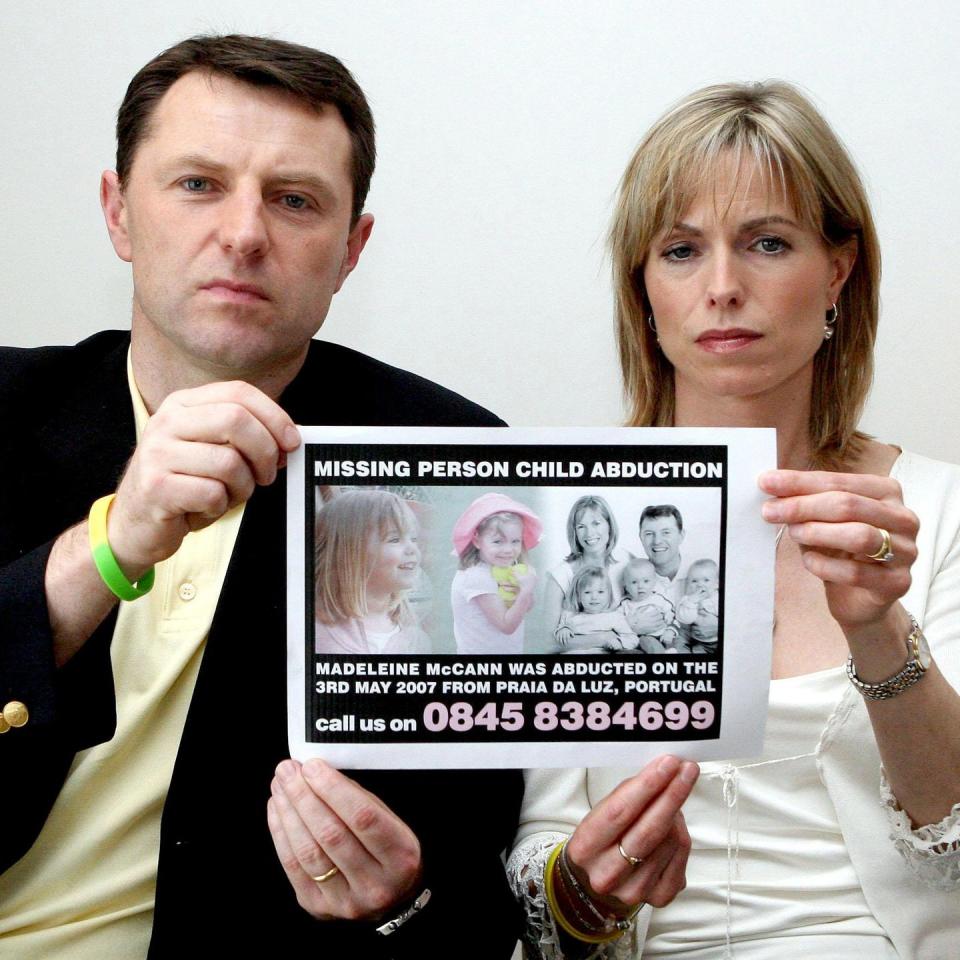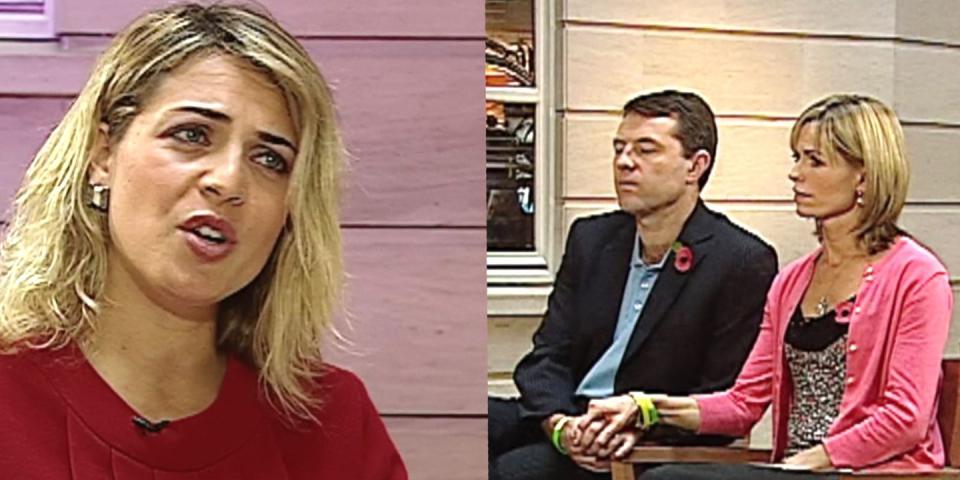One thing from Netflix's The Disappearance of Madeleine McCann we should be talking about

Netflix's documentary series The Disappearance of Madeleine McCann has been steeped in controversy.
Madeleine McCann's parents Kate and Gerry refused to take part, and raised concerns that it could further fuel conspiracy theorists. Still on the lookout for their daughter, who has been missing for 11 years, the McCanns also stressed that they were worried the film might "hinder" the ongoing investigation.

Related: Why Madeleine McCann's parents aren't in the Netflix documentary about her disappearance
The Disappearance of Madeleine McCann is more sensitive than we feared – decisively moving away from the sensationalism that has plagued the case over the years.
It's an exhaustive timeline of what occurred from the moment that three-year-old Maddie went missing from her holiday apartment in Praia da Luz, Portugal, in 2007. A compilation of pre-existing interviews, archive footage and re-enactments, the documentary attempts to piece together the extraordinary circumstances surrounding Madeleine's disappearance and the investigation that followed.
But the docu-series is not without its faults. With a run time of about eight hours, it feels unnecessarily padded – particularly when you consider that it provides no new information regarding the case itself.
That being said, it does serve to shine a light on one key point: the level of inaccurate information that has circled the case, often perpetuated by exploitative media coverage and further fuelled by internet sleuths. At a time when viewer engagement with the true-crime genre is at its peak, this perspective is instructive.

Let's take a single instance identified by the show.
We'd venture that, whether you've binged your way through The Disappearance of Madeleine McCann or not, you're probably already aware of 'cadaver dogs'. They are often used to search crime scenes for the scent of human remains and, in the search for Madeleine, spurred a shift in the handling of the case.
The now-infamous footage of these two specially trained canines barking – both inside the holiday apartment and when making contact with the McCann's rental car – is incorporated into the series.
At the time it lead to forensic testing of materials found in the apartment and the decision by the Portuguese authorities to investigate the theory that Madeleine McCann might have died in the Praia da Luz holiday complex.

The subsequent DNA report was originally written in English but was then translated into Portuguese for the authorities. Only the summary of the report was submitted to the police in Portuguese, a section which did not include the conditions and limitations regarding validity of the results.
The incomplete DNA information found its way into the press and, before long, unsubstantiated allegations started to circulate.
Tabloids splashed accusations against the McCanns across their front pages and the media frenzy became relentless. One particular newspaper, featured in the documentary, ran a front-page headline with the words: "We have found her blood in the boot of your hire car… Did you kill her by accident?"
First of all, there was no evidence to confirm whether the source of the DNA was in fact blood. Second, it was not confirmed that the source was Madeleine.

With the rise of internet forums and, later, micro-blogging websites such as Twitter, uncorroborated information and personal opinion were able to spread even further. Myths and falsely interpreted information could be presented as fact, feeding into wild conspiracy theories.
Following months of this type of speculation, the final forensic report came in.

"There never did emerge one single identical match for the DNA of Madeleine McCann," investigative reporter and researcher Robbyn Swan explains.
Expert dog handler Martin Grime saysthat an alert from the cadaver dogs was not enough on its own; it was only ever intended as an indicator for the investigators to look for possible corroborating evidence – which, in this case, they did not find.

The debate surrounding true crime as a form of entertainment is always going to be a divisive one. But it comes down to the approach and the themes that are explored – does it fall into the trap of being gratuitous, prurient or exploitative? Or does it serve a wider purpose, such as investigating a perceived injustice or serving up new facts relating to a cold case?
If there's anything we can take from Netflix's The Disappearance of Madeleine McCann, it's that we – as consumers – have a responsibility to arm ourselves with the facts, and to remember that we don't have access to all of them. Sometimes keeping our own counsel is the responsible thing to do.
The Disappearance of Madeleine McCann is available on Netflix now.
Missing People UK is dedicated to bringing missing children and adults back together with their families. If you've been affected by the issues raised in this article, you can access more information on their website or by calling 0800 116 000.
Readers in the US are encouraged to contact the National Runaway Safeline on 1-800-RUNAWAY.
('You Might Also Like',)

